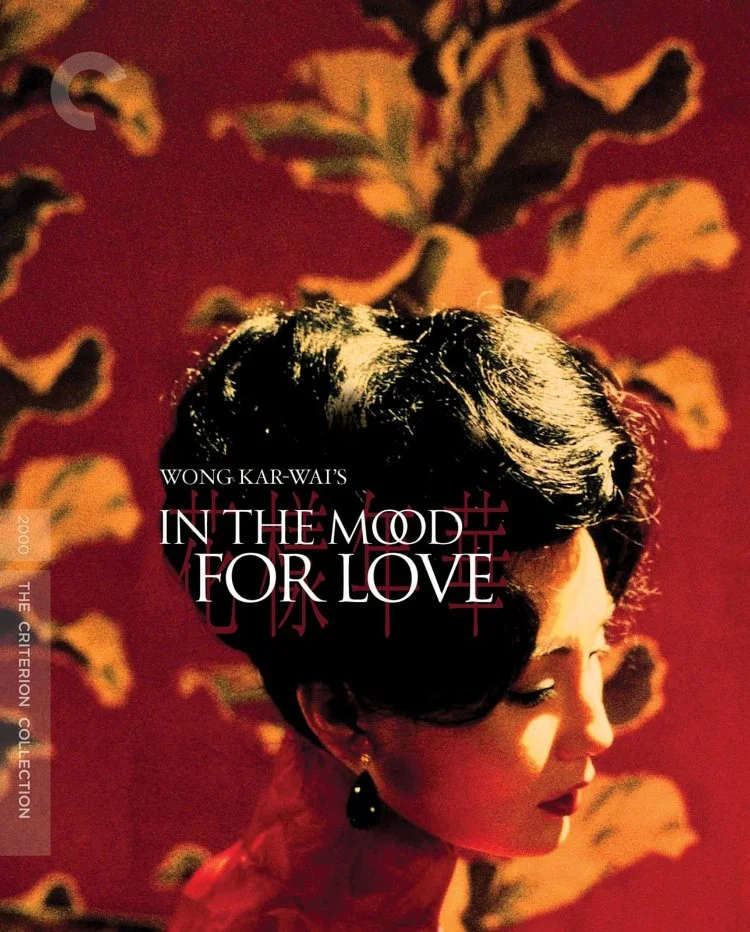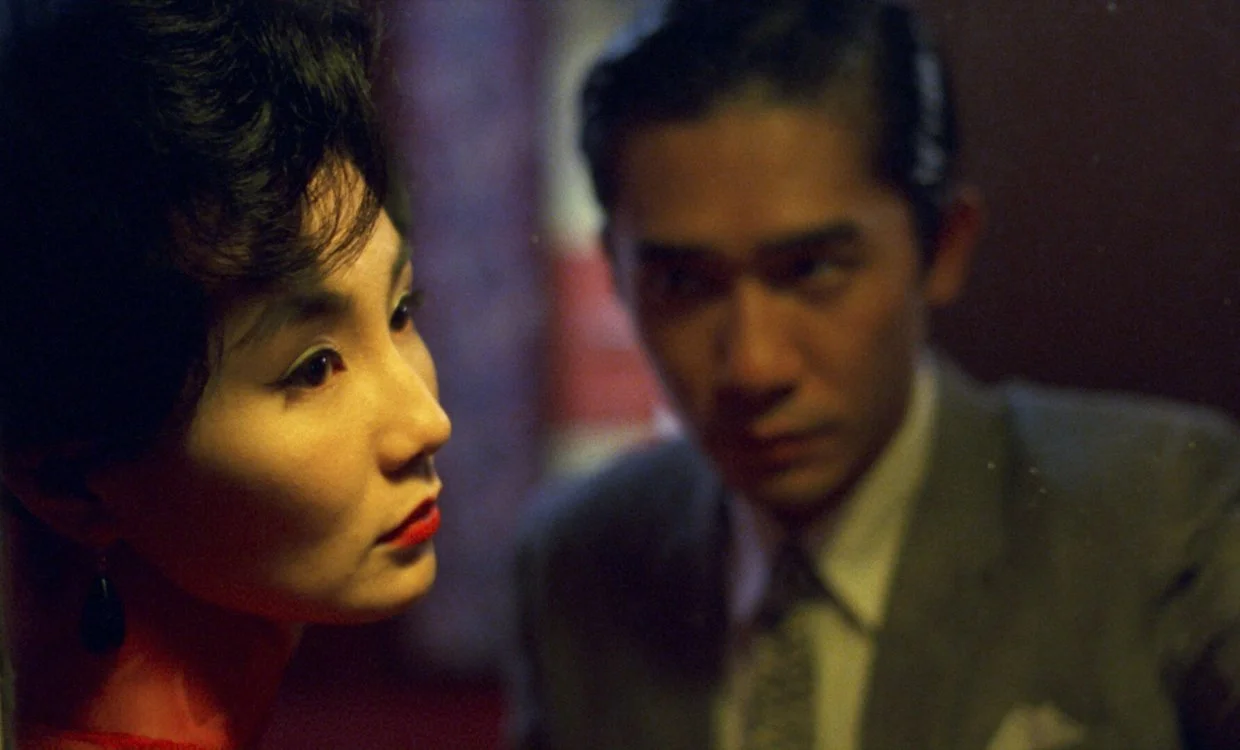In the Mood For Love Dissects The Disappointments Of Romantic Love
It is 1962 in Hong Kong and love is a strange topic that no one talks about as the city’s inhabitants are content with their routines and familial chatter. Echoed as one of the greatest contemporary filmmakers in Hong Kong, Wong Kar-wai uses careful preparation, calculation, and genius to create a seductive film like this in the year 2000. In The Mood for Love is cut together like a glossy time capsule guarded for any generation of hopeless romantics to dissect, enjoy then dissect all over again.
A sombre, slow, and sad mood curls as our two main characters rush around to find a space to rent. This tension breaks as soon as it clicks that the man (Mr Cho Mo-wan) and woman (Su Li-zhen or Mrs Chan) we have been observing are not an item but already attached. However, in a strange kismet they end up as neighbours. Throughout the film, we approach a sensitive, insular, love story that becomes an immersive experiment softly resisting the claws of polite Hong Kong society. Will they fully rebel? As our potential lovers slowly go with the flow, chasing the circuit of their work and personal lives, a decadent story flashes visions of respectability, loneliness, friendship, infidelity, and love.
Mrs Suen, the kind but overbearing Landlady, crystallises a culturally sensitive time in Hong Kong where simple nods and polite gestures were enough to start and finish a conversation. The very stylish Mrs Chan and gentile Mr Cho are constantly being pestered by their landlady who becomes an unwanted oracle of the film, fusing our friends together and pushing them apart also. A culture which shelves the plight of honest people, requires playing along to societal norms, yet having to stuff down real emotion is saddening.
Infidelity is one such norm as Mrs Chan is a secretary, entangled in her boss’ extra marital liaisons, organising meetings in return for time-off and less workload. This pressure on her and potentially other women, to be obedient but also enablers, is tragic but common for the time in Hong Kong. The temptation for both Mrs Chan and Mr Cho to do the same is an easy option but is literally frowned upon by the Landlady and ironically Mrs Chan’s boss. This is a frustrating part of the story yet overtime, both friends learn of a common secret, showing how love can be both destined and disposable. A special strength, however, comes from Mrs Chan who becomes both a driver and passenger of this experiment.
As a foundation based on purity and genuineness is ironed down, delicious slow montages show how the two neighbours begin brushing past each other through hallways, rain (a signature style of Wong), mentally and perhaps metaphysically. Their lives are slowly intertwining but also unravelling simultaneously, because though married, they are equally starved of affection from their absent partners. We can identify with their loneliness which is brought about by circumstances outside of their control. As unfortunate as this may be, we accept that it may bring them closer to who or what they need. Which is hopefully each other. We cheer them on regardless, because we start to care, of course caring being a great foundation of any relationship.
Wong uses elegant colours and mirroring techniques to document time and space in this almost two-and-a-half-hour film. Whether it is through the saturated reds and greens which alert us to the characters moods or using their bodies as vessels for deeper, subtle communication. Profile shots of faces suggest a lack of fulfilment as if our characters are not able to present their true whole selves. On a positive note, this highlights the compatibility of our friends who share similar facial qualities. Whereas this is contrary to the film’s opening text which translates to: “It is a restless moment. She has kept her head lowered... to give him a chance to come closer. But he could not, for lack of courage. She turns and walks away.” Interestingly, Wong is also known to write his script as he goes, foregoing acting rehearsals, naturally, which glazes an unpredictable but pleasant element to this story’s dialogue and movements.
Like a vintage art-deco halogen lamp, In The Mood for Love is jazzy, intimate and experimental. Shot entirely at night, the film relies solely on instinctive performances from the actors to define what love means to them: the act of falling blindly or choosing not to. The gaze that the two main characters share with each other is magnetic, with the force of a typhoon rain: endless yet comforting. At last, after swaying through the blur of friendship, a spark blazes up near the films ending, filtering out an opportunity for Cho and Su. Whether the risk to love outweighs the mood for love, is a journey they must decide on together.










